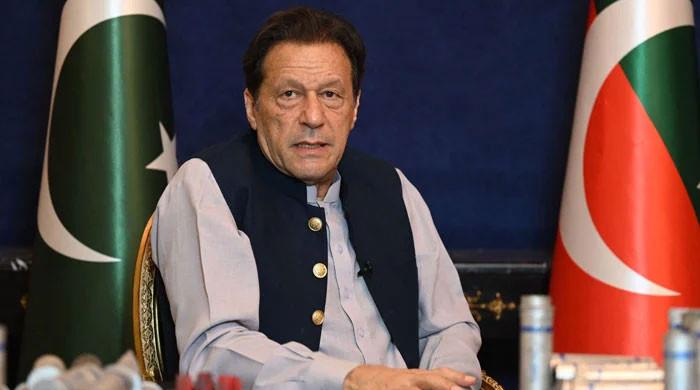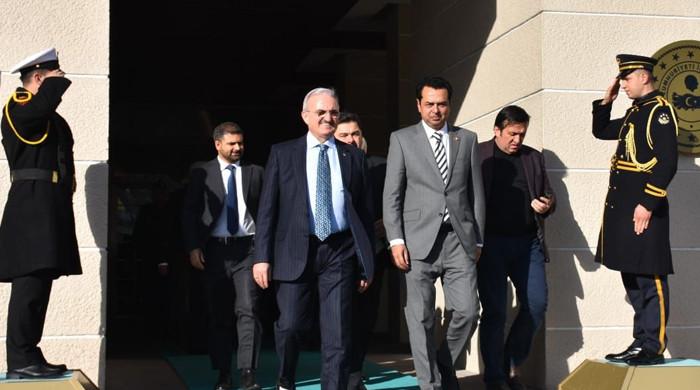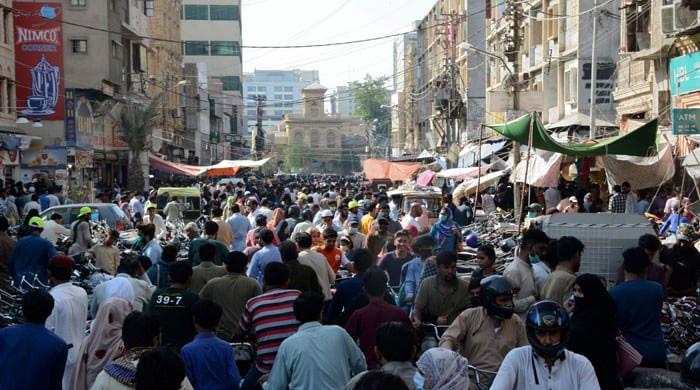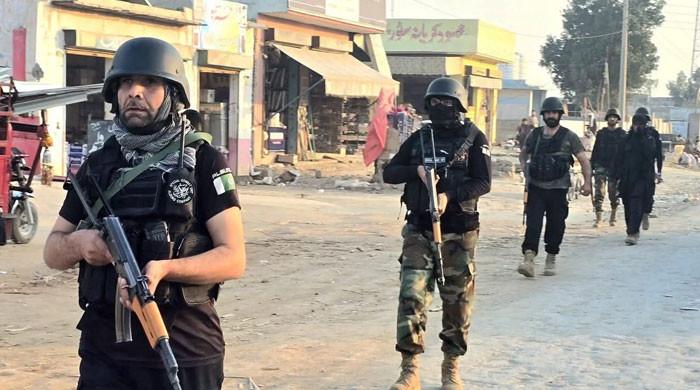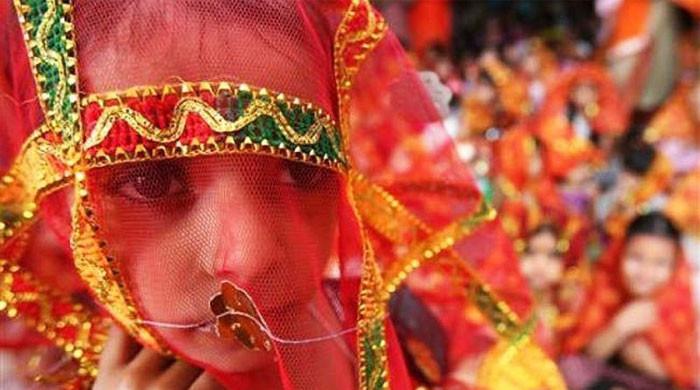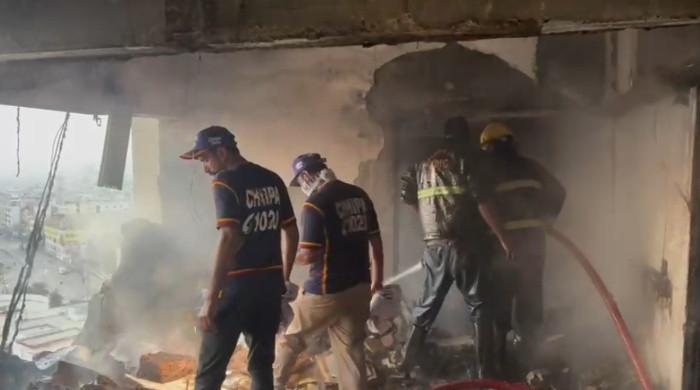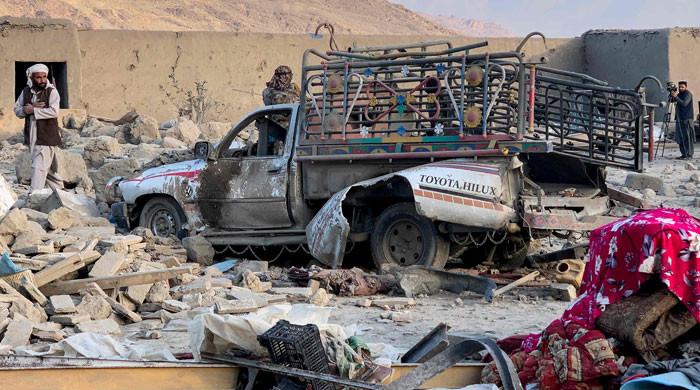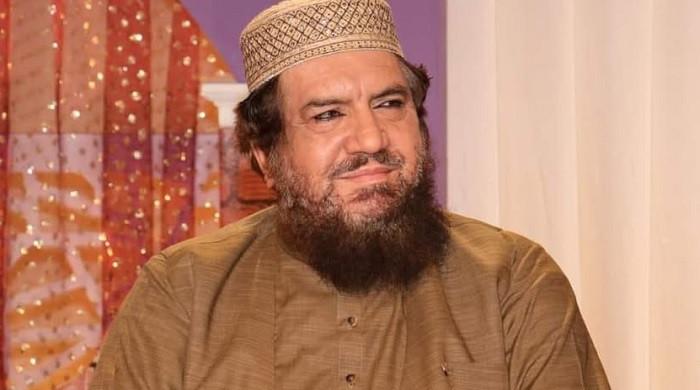15 years of togetherness: Pakistani-Afghan couple's story
Muhammad Bilal, who married to Pakistani girl, faces deportation amid ongoing crackdown
November 07, 2023
KARACHI: In the realm of people who have chosen love over all odds, there exists a tale that has transcended borders.
It is the story of Muhammad Bilal, who claimed he was born to Afghan immigrant parents in Karachi and fell in love with Rabia — a resident of Punjab’s DG Khan district.
Bilal's journey started with numerous challenges, primarily due to not having official identity documents in Pakistan, which posed a substantial obstacle to his education and personal life.
However, Karachi, the city where he was born in 1988, not only provided him with a livelihood but also the love he had longed for.
Rabia, who belongs to DG Khan, residing in the same locality, used to cross paths with Bilal frequently, and her charm captivated him. An unexpected bond began to blossom, leading to a decision that none of them had ever imagined.
Bilal recalls: "We met casually, and I immediately liked her. I told my parents to consider the relationship. They agreed, but my brothers said if I marry a Pakistani girl, there will be no connection left with us or our homeland."
Undeterred by these sentiments, Bilal's brothers left for Afghanistan, and he established a household with Rabia in Karachi. Surprisingly, Rabia's family had no objections to the union, while Bilal's family had mixed reactions.
"When Bilal's proposal came, my parents asked for my consent. I told them that I like him," Rabia says, with a smile. Her response drew teasing from her father, who quipped, "So, you only liked this boy?"
Responding to her father, Rabia says: "I gave you the answer to your question." Their unique love story serves as a testament to the power of love that transcends geographical boundaries.
Fifteen years of unwavering love
After 15 years of marriage, Bilal's unwavering commitment to the relationship is a testament to his character. He has consistently shown the same love and care to Rabia, his widowed mother-in-law, and his divorced sister-in-law as he does to his own family.
However, since the government's crackdown on Afghan nationals, Rabia and her family have been living in constant worry. The voice of Rabia, now tinged with reflection, resonates with concern.
Rabia explained her efforts to obtain a national identity card (NIC) for her spouse Bilal but to no avail despite running pillar to post.
She shared the unfortunate experience of a lawyer who demanded a significant sum but failed to resolve the matter. Yet, Bilal remained resolute in pursuing the legal route to obtain the identity card.
rBilal expressed, "I heard about the directive from the Peshawar High Court to grant identity cards to Afghan nationals married to Pakistani citizens. I joined the struggle in light of this landmark judgment. Unfortunately, it did not yield results. I regret not taking this matter more seriously at first. I was unaware that lacking an identity card in Pakistan could lead to separation from our families. My roots are in this country, and I have a deep affection for it. Regardless of legal decisions, our financial commitments are in Pakistan, and even if we are deported, our homeland will remain Pakistan."
Their lives have been severely affected by the ongoing government’s crackdown against illegal immigrants. Bilal has not gone to work for the past fifteen days, and their circumstances have grown increasingly challenging.
Even amid these challenging times, Bilal shared that his workplace continues to offer him immense respect and understanding. Even without proper identification, they have allowed him to retain his job. He noted that, since the government announced the repatriation of foreign nationals living illegally, his employer is encouraging those with valid identity cards to return.
Fear of separation
Bilal refrains from leaving his home due to the fear that if he is forcibly deported, his wife and children might be left searching for him.
Rabia and Bilal, parents of five children, are deeply concerned about their family's future. The predicament lies in the fact that if Bilal returns to Afghanistan, his brothers will not accept him, and if he remains in Pakistan, it poses its own set of difficulties.
Rabia emphasised, "My husband's brothers have not accepted us in the fifteen years of our marriage. They even threatened us, saying if you return, we will harm you. I am worried for my husband because he is my only support. As for myself, why should I go anywhere? I am a Pakistani. They are not my people, and neither is Afghanistan my homeland."
Despite their challenging circumstances, the couple has appealed to the government to reconsider its policy on migrants, shedding light on the plight of those caught in the crossfire of circumstances beyond their control.




